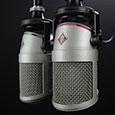Diet and exercise are more effective than either method alone when it comes to losing weight and body fat – as found by researchers at the Fred Hutchinson Cancer Research Center. In the study, participants were divided into three groups. The first two groups either limited their calorie consumption and exercised for 45 minutes a day, respectively. The third followed a program that included both diet and exercise. Results showed that the majority of people in the third group achieved their goal of losing at least 10% of their starting weight, performing better than the other two groups. Still, weight loss involves a delicate balance between how you work out and what you eat and there are many pitfalls you should aim to avoid. The following are just a few obstacles that can prevent you from achieving your goals.
Only Completing Aerobics Workouts
Think “weight loss” and the first thing your mind may conjure up are workout tights and a daily House music aerobic class. While aerobic workouts are very important to lose body fat, they by no means should be the only player in your routine. An August, 2021 study by University of Kentucky researchers showed that resistance training has unique benefits for fat loss. During resistance training, muscle cells release particles called ‘extracellular vesicles’ which instruct fat cells to start burning fat. The study can be considered groundbreaking because this is the first time that weight training has been shown to cause metabolic adaptations in fat tissue.
Stopping Your Routine if You are Fasting
Fasting may not be for everyone but recent studies have shown that it can be helpful, at least in the short term. A 2019 University of Adelaide study showed that obese women lost more weight when they fasted intermittently than when they followed a strict diet. The basics of intermittent fasting are centered on more than simply losing weight. By withholding calories and prolonging periods during which the body burns fat reserves, dieters can work on additional goals such as increasing human growth hormone, repair cells, lower insulin levels, and boost the release of norepinephrine (a hormone linked to fat-burning). Don’t stop exercising if you are fasting, though. A study by M Vendelbo and colleagues showed that exercise and fasting together raise growth hormone levels. Low growth hormone levels are linked to obesity, so keeping your levels up naturally can be vital during your weight loss journey.
Not Measuring the Calories You Burn During Exercise
People who do not use a fitness tracker or other means of counting up the calories they burn can overestimate how hard they work out, thinking that they can easily consume ‘cheat foods’ without putting on weight. If you thought calculating the calories burned during a workout was easy, think again. A 2018 University of California study found that people have very different perceptions of fitness and that wearable fitness trackers are useful when it comes to revealing hard truths – including the fact that many people aren’t quite as active as they think.
Dieting and exercise are the perfect combination for people wishing to lose weight. If you are currently trying to shed a few pounds, make sure you balance your aerobic workouts with resistance/weight-bearing exercises. Keep exercising even if you fast intermittently and wear a fitness tracker so you can objectively assess how hard you are working on a given day.
- 0share
- 0Facebook
- 0Twitter
- 0Pinterest
- 0LinkedIn















